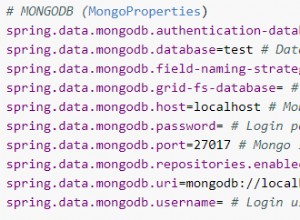Aby zrobić to atomowo, wszystkie trzy przykładowe dokumenty muszą być częścią tego samego dokumentu. MongoDB wykonuje operacje tylko na prostych dokumentach:https://www.mongodb.org/ wyświetlacz/DOCS/Atomowy+Operacje
Jeśli są one częścią jednego dokumentu, następujące zmiany zmienią kolejność drugiego i trzeciego poddokumentu:
> db.so.find().pretty();
{
"_id" : ObjectId("4f55e7ba362e2f2a734c92f8"),
"subs" : [
{
"author_id" : "a",
"class" : "principle",
"content_id" : null,
"host_id" : null,
"modified_date" : 1330935540,
"order" : 1,
"pub_date" : 1330935540,
"score" : 0,
"text" : "Hello World!",
"vote_down_count" : 0,
"vote_up_count" : 0
},
{
"author_id" : "a",
"class" : "principle",
"content_id" : null,
"host_id" : null,
"modified_date" : 1330935538,
"order" : 2,
"pub_date" : 1330935538,
"score" : 0,
"text" : "Nice to meet you.",
"vote_down_count" : 0,
"vote_up_count" : 0
},
{
"author_id" : "a",
"class" : "principle",
"content_id" : null,
"host_id" : null,
"modified_date" : 1330935548,
"order" : 3,
"pub_date" : 1330935548,
"score" : 0,
"text" : "Great!",
"vote_down_count" : 0,
"vote_up_count" : 0
}
]
}
Zapytanie:
db.so.update(
{ _id: new ObjectId("4f55e7ba362e2f2a734c92f8")},
{ $set : { 'subs.1.order' : 3, 'subs.2.order' : 2 } }
);
Wynik:
> db.so.find().pretty();
{
"_id" : ObjectId("4f55e7ba362e2f2a734c92f8"),
"subs" : [
{
"author_id" : "a",
"class" : "principle",
"content_id" : null,
"host_id" : null,
"modified_date" : 1330935540,
"order" : 1,
"pub_date" : 1330935540,
"score" : 0,
"text" : "Hello World!",
"vote_down_count" : 0,
"vote_up_count" : 0
},
{
"author_id" : "a",
"class" : "principle",
"content_id" : null,
"host_id" : null,
"modified_date" : 1330935538,
"order" : 3,
"pub_date" : 1330935538,
"score" : 0,
"text" : "Nice to meet you.",
"vote_down_count" : 0,
"vote_up_count" : 0
},
{
"author_id" : "a",
"class" : "principle",
"content_id" : null,
"host_id" : null,
"modified_date" : 1330935548,
"order" : 2,
"pub_date" : 1330935548,
"score" : 0,
"text" : "Great!",
"vote_down_count" : 0,
"vote_up_count" : 0
}
]
}




